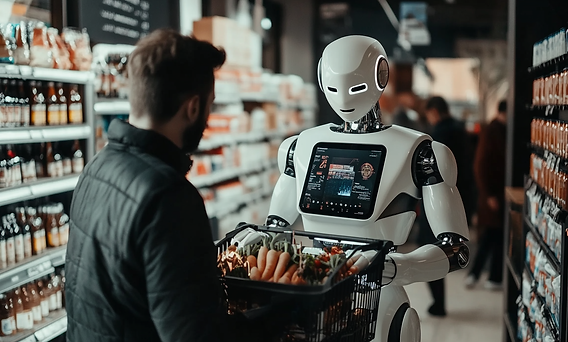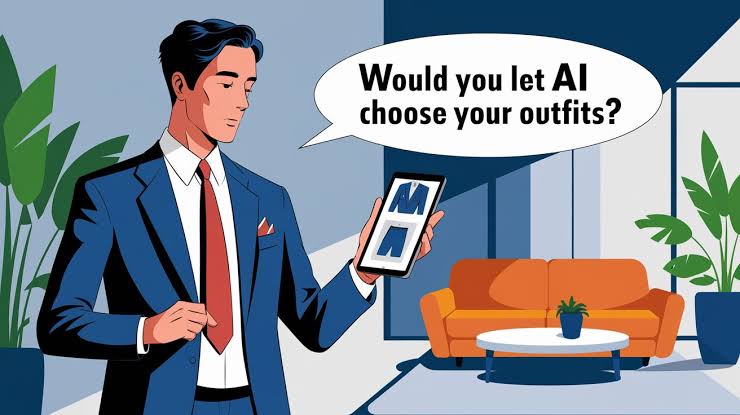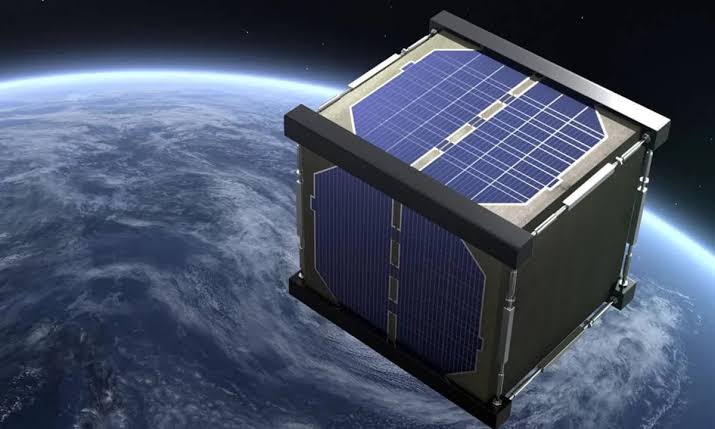
As the retail landscape evolves, businesses are increasingly turning to automation to optimize operations, reduce staff costs, and enhance customer experiences. The UK retail sector, in particular, is embracing cutting-edge technologies like robotic process automation (RPA) and AI-powered cameras, reshaping how products are packed, sorted, and delivered to consumers. By adopting these advanced tools, retailers are streamlining their processes, achieving unprecedented efficiency, and positioning themselves for future growth in a competitive market.
This article explores the innovative role of automation in UK retail, drawing parallels to the Green Bay Packers’ strategic plays in American football. Just like a well-oiled team executing flawlessly on the field, robotic packers and AI cameras work together to improve retail operations, helping businesses stay ahead of the curve. Let’s dive into how automation in UK retail is transforming staffing, logistics, and customer service, and what technologies are driving these changes.
I. Introduction
The traditional retail model, often reliant on large teams of staff to manage stock, process orders, and handle customer inquiries, is rapidly changing. With the increasing demand for efficiency and cost reduction, UK retailers are now looking to automation as a solution. At the heart of this transformation is a combination of robotic technologies and AI-driven systems that optimize tasks like inventory management, packaging, and customer service.
Automation offers many advantages, from reducing the need for human labor in repetitive tasks to improving accuracy and speeding up processes. For retailers, this means lower operational costs, faster delivery times, and the ability to offer a more seamless shopping experience. One exciting area where automation is making waves is in robotic packing and AI cameras, which are helping streamline processes and reduce costs across the board.
II. Exploring the Connection Between Automation and Retail
1. Green Bay Packers: Efficiency and Precision in Automation
When we think of the Green Bay Packers, we picture a professional football team renowned for its strategic plays and teamwork. The term “Packers” is also closely associated with the task of packaging — which is at the core of retail automation. Just like the Green Bay Packers execute precise plays on the football field, robots in retail are designed to perform highly efficient and accurate tasks in warehouses and distribution centers.
The connection is simple: just as a successful football team relies on synchronized efforts, robotic packers and automation technologies work together to optimize retail processes. Whether it’s packing products for delivery or sorting inventory, automation systems ensure that every task is completed swiftly and without error, much like a well-coordinated team of athletes on the field.
In this analogy, robotic packers serve as the key players, performing repetitive tasks with remarkable efficiency. They are guided by sophisticated software and programmed to handle various types of goods, ensuring products are packed quickly, accurately, and without damage. In retail, this is akin to a football team executing flawless plays to gain yardage and score touchdowns — efficiency and precision are paramount.
2. Lions and Packers: Competition in the Retail Arena
The rivalry between the Detroit Lions and Green Bay Packers in the NFL mirrors the competition between retailers in adopting automation technologies. As the retail market grows more competitive, especially with the rise of e-commerce, businesses are vying for dominance. Retailers that embrace cutting-edge technology gain a distinct advantage by reducing staff costs and improving operational efficiency.
For UK retailers, embracing automation isn’t just about keeping up with the competition; it’s about staying ahead. By adopting technologies like robotic packing and AI cameras, retailers can offer faster service, more reliable delivery, and ultimately, a better customer experience. Meanwhile, those who resist automation may find themselves at a disadvantage, struggling with rising costs and slower operational speeds.
The competitive nature of automation adoption in UK retail can be likened to the fierce rivalry between the Lions and the Packers, where only the most adaptable and forward-thinking will emerge victorious in the race to offer the best products and services to consumers.
3. Aaron Rodgers: The Key Players in Retail Automation
Just as Aaron Rodgers is a key player for the Green Bay Packers, driving the team’s success with his leadership and skill, key technologies like AI cameras and robotic systems are driving success in UK retail automation. These technologies serve as the leaders of the retail transformation, enabling businesses to achieve greater efficiency and precision.
Aaron Rodgers’ ability to read the game and make strategic decisions is comparable to how AI cameras and robotic packers help retail businesses understand and manage their operations. AI cameras, for example, can monitor inventory levels, detect damaged goods, and track the flow of products in real-time, just as a quarterback analyzes the field and calls the best play. In this way, AI systems provide the “playbook” for retailers, helping them make data-driven decisions that enhance operational performance and customer satisfaction.
Robotic systems, much like Rodgers’ leadership on the field, allow UK retailers to scale their operations effectively without relying heavily on human staff. With automation, tasks such as packing, sorting, and inventory management are handled by machines, freeing up employees for higher-level tasks that require human creativity and decision-making.
III. The Technologies Driving Retail Automation
4. Robotic Process Automation (RPA): Streamlining Retail Operations
Robotic Process Automation (RPA) refers to the use of software robots to automate rule-based tasks that were previously performed by humans. In the retail sector, RPA is increasingly being used to handle repetitive processes such as inventory management, order processing, and packaging.
RPA works by mimicking human actions, following predefined workflows to complete tasks quickly and accurately. For example, when an order is placed, RPA software can automatically update the inventory, create a packing list, and even generate a shipping label, all without human intervention.
In UK retail, this means faster processing times and fewer errors, which can lead to significant cost savings. Retailers can achieve high levels of efficiency during peak periods, such as holiday seasons, when the volume of orders and deliveries increases. Additionally, RPA systems can work around the clock, ensuring that tasks are completed even during off-hours, further reducing the need for staff.
5. Programmable Logic Controller (PLC): Precision and Reliability in Automation
A Programmable Logic Controller (PLC) is a digital computer used to control automation systems in industries such as manufacturing, logistics, and retail. In the context of UK retail, PLCs are used to control robotic packers, conveyor belts, and other automated systems within warehouses and distribution centers.
PLCs provide precise control over machinery and automation processes, ensuring smooth operation and minimizing downtime. For instance, when a robotic packing system needs to adjust based on the size or weight of a product, the PLC makes real-time decisions to direct the machine to perform the correct action. This level of precision is critical for maintaining efficiency in high-volume retail environments, where even small delays can result in costly errors or missed delivery windows.
The integration of PLCs into retail operations enhances both the speed and accuracy of tasks like sorting and packing. As a result, UK retailers can scale their operations more effectively and maintain high standards of service, even with reduced staffing levels.
IV. Benefits of Automation in Retail
The integration of automation technologies into UK retail operations brings a range of benefits that are reshaping the industry:
1. Cost Savings :
One of the most significant advantages of automation is the reduction in labor costs. Robotic packers and AI-driven systems can perform repetitive tasks faster and more accurately than human workers, reducing the need for staff to handle these processes. This is especially important in a sector where wages and operational expenses continue to rise. Retailers can use automation to scale operations without having to proportionally increase their workforce.
2. Efficiency and Accuracy :
Automation ensures that tasks are completed quickly and without errors. For example, robotic packers can handle products with precision, reducing the likelihood of damage or incorrect packing. Similarly, AI cameras can scan inventory in real-time, ensuring that stock levels are always accurate and up to date. By minimizing human error, automation enhances overall operational efficiency.
3. Speed :
Automated systems are significantly faster than manual processes. With robotic packing and sorting systems, UK retailers can fulfill orders much more quickly, meeting consumer demands for faster delivery times. This speed is particularly important in e-commerce, where customers expect quick turnaround times for their orders.
4. Scalability :
Automation allows retailers to scale their operations without the need for a corresponding increase in labor. During busy periods, such as the holiday season, automated systems can handle the surge in demand without requiring additional staff, making it easier for businesses to scale up quickly and efficiently.
• Conclusion
UK retail is undergoing a transformative shift, with automation playing a central role in driving cost savings, efficiency, and competitive advantage. Just as the Green Bay Packers rely on precise strategies and key players like Aaron Rodgers to lead them to victory, UK retailers are turning to advanced technologies like robotic process automation and programmable logic controllers to streamline operations and reduce costs.
The integration of these technologies into the retail sector is helping businesses adapt to changing market demands, offering faster service, improved accuracy, and greater flexibility. As automation continues to evolve, UK retailers will be well-positioned to meet the challenges of an increasingly digital and competitive marketplace.
In the end, the future of retail lies in automation, where robots, AI cameras, and intelligent systems will continue to shape the industry, driving growth, efficiency, and better customer experiences. The race to adopt these technologies has only just begun, and retailers that embrace automation today will be the ones leading the charge into the future.
This article ties together the concept of automation in UK retail with the metaphor of the Green Bay Packers, illustrating how technologies like RPA, AI cameras, and PLCs are playing a key role in reducing costs and improving efficiency in the sector.




